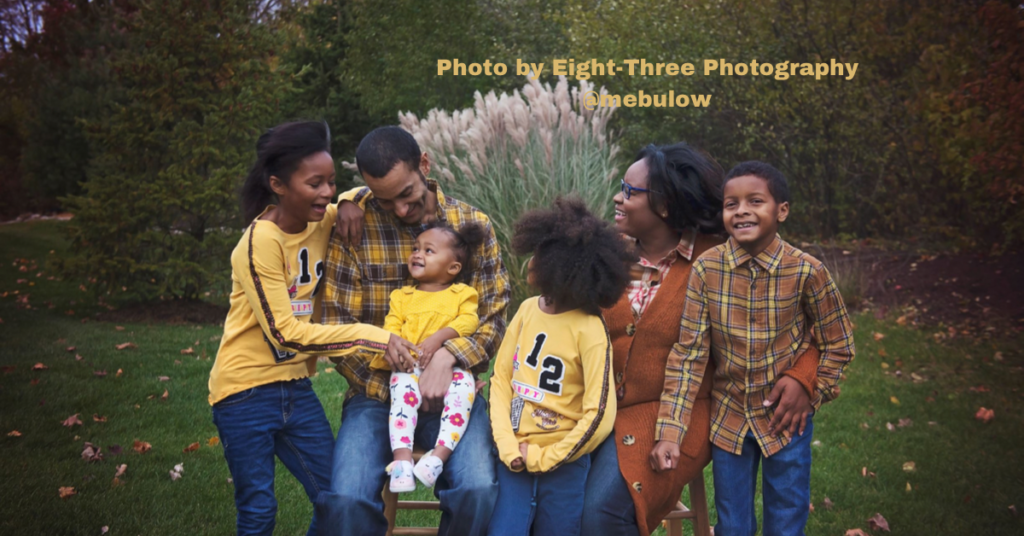
This year, I faced strange challenges in my role as mother and trainer of children. The whisper came back: Is another child of mine being mistreated because of the world’s unresolved issues with the meaning of skin color? I look around at the world in which the same people who decide for themselves (and tell us), It is not okay to kill an attacking bear…also say, It’s a “sacred” right to kill a baby in the waters of its mother’s womb. I’m troubled by a system whose “science” says there is no God – except the god that says, Human dignity demands that science bow to the preference of women to be called men and vice versa, ignoring DNA. There stood around me a gloom. In this fog, my problems and issues and challenges were magnified and threatened to blot out the goodness of God and snatch His praise from my lips.
I had a hard time saying what I was thankful for this year. At one of the Thanksgiving dinners I attended, I came up surprisingly short.
There’s something wrong with that; I’m a Christian.
Not being able to locate my gratitude means to me: My spirit is hungry. My spirit is the part of me that God the Father made truly alive – that is, through my faith in His Son and by His grace. And my lack of gratitude means my spirit isn’t the filter for my soul right now. Because the eternal part of me is always aware of God and His goodness. I want to come back to this idea later in the Book of the Psalms – after I tell you a story about an Anglican Bishop, Jwan Zhumbes of Bukuru, Nigeria.
God is always God. And He’s good. And He so loves me (The Gospel of John, Chapter 3, verse 16.) And I stand in His amazing grace through and by Jesus Christ, His Son (The Epistle of Paul the Apostle to the Romans, Chapter 5, verses 1 and 2.)
So, I said (when asked at one Thanksgiving dinner, What are you thankful for?): “This is too casual an environment to talk about that. I’ll have to write a letter about the deep things for which I’m grateful.”
I guess I’m writing that letter now.
I listened to the podcast about the Bishop from Nigeria. He came to America and was diagnosed with cancer. My husband has Nigerian roots, and this is significant for reasons I’ll get into soon.
One strange thing about the Bishop being treated for cancer is: His diagnosis and treatment in Birmingham, Alabama may be the most restful periods of the Bishop’s life.
Before he came to visit the United States with a Christian brother, the Bishop was facing persecution from Islamic extremists. He was losing members of his church regularly. He was performing funeral services for human beings who had been murdered for their faith in Jesus Christ and then piled up onto each other. He did this more than once.
My brown children also have Nigerian roots, because of their father, and they have challenges. But I can be thankful now in a new and profound way, because though they may be hated for their faith in God; they are not being forced into slavery. It’s not 1850, and that’s actually happening to South Sudanese Christians. My husband may have challenges at work, but it isn’t that he cannot get a raise based upon his faith. The place where he makes a living hasn’t been looted and burned down, because he has come to the Father for forgiveness of his sins through His saving faith in Christ.
The Bishop has seen these things and more – rape; disembowelment; mothers and daughters pushed off their ancestral lands and out of their homes after having had their husbands, fathers, and brothers killed in front of them; people being burned; the denial of the existence of indigenous Christians; girls forced into marriage and then coerced into religious conversion or, at least, the outward traditions and profession of a faith they have not chosen.
The church in Nigeria has been abandoned by the church of England (the Anglican Church, also known as the Episcopal church here in America), which first evangelized Nigerians to make Christians out of them, educated them, and gave them the foundation for who they are today. The issue is the church of Nigeria’s stand on the Biblical truth regarding sexuality. In the words of Archbishop Peter Jasper Akinola (a Nigerian, a Christian, and an Anglican): “We in Nigeria believe very strongly in the priority of the Scripture. We want to see ourselves as a church that seeks to live in obedience to the dictates of the Scripture, regardless of whether that is convenient or inconvenient.”
While the strictness of the Nigerian church’s stand on the authority of the Bible may seem oppressive in the West, it is the truth of the Bible which was the basis for the outlawing of slavery here – the basis of freedom.
As I prayed about what I heard in this podcast, 2 things happened:
- God led me to The Book of Psalms, Chapter 40, to remind me that He remembers (The Book of Psalms, Chapter 40, verses 5 and 17) the persecuted church, sees their faithfulness (The Book of Psalms, Chapter 40, verses 9 and 10), and is their help (The Book of Psalms, Chapter 40, verse 17); and
- I began to look around myself and see that I am the rich, young ruler to whom Jesus said: Sell all you have and give it to the poor.
17And as he was setting out on his journey, a man ran up and knelt before him and asked him, “Good Teacher, what must I do to inherit eternal life?” 18And Jesus said to him, “Why do you call me good? No one is good except God alone. 19You know the commandments: ‘Do not murder, Do not commit adultery, Do not steal, Do not bear false witness, Do not defraud, Honor your father and mother.’” 20And he said to him, “Teacher, all these I have kept from my youth.” 21And Jesus, looking at him, loved him, and said to him, “You lack one thing: go, sell all that you have and give to the poor, and you will have treasure in heaven; and come, follow me.” 22Disheartened by the saying, he went away sorrowful, for he had great possessions.
23And Jesus looked around and said to his disciples, “How difficult it will be for those who have wealth to enter the kingdom of God!” 24And the disciples were amazed at his words. But Jesus said to them again, “Children, how difficult it isb to enter the kingdom of God! 25It is easier for a camel to go through the eye of a needle than for a rich person to enter the kingdom of God.” 26And they were exceedingly astonished, and said to him,c “Then who can be saved?” 27Jesus looked at them and said, “With man it is impossible, but not with God. For all things are possible with God.”
(The Gospel of Mark, Chapter 10.) The LORD knew that the young man couldn’t see around all the things in front of him, which numbed him and blinded him to the presence and identity of God in his very midst. I look around at all I have and remember the moment I was asked about my own sense of gratitude… It was blocked, and I was numb.
But, what shook me out of my stupor is also my comfort, because though people may not befriend my kids, they aren’t killing them. And though my baby may be hungry at times; it isn’t that we don’t know when we’ll be able to feed her again as we make our way, homeless and husband-less. We just have to wait until Walgreens opens at 7.
I’m grateful for that – the convenience and comfort and privilege and my reward of children, for my family… But I’m also grateful that God has given me so much…that I can be generous in return – especially to my brothers and sisters in Christ, who are being persecuted. There is a global Holocaust of Christians, particularly in Africa that is being ignored like the fascist death camps of Nazi Germany.
Children of God, we aren’t powerless to do anything about it; we have prayer, the ability to give money, and the right to lobby and seek to influence our government officials on these desperate matters, plus whatever else God speaks into our hearts to do.

